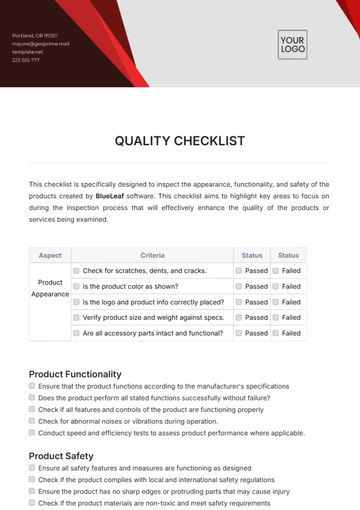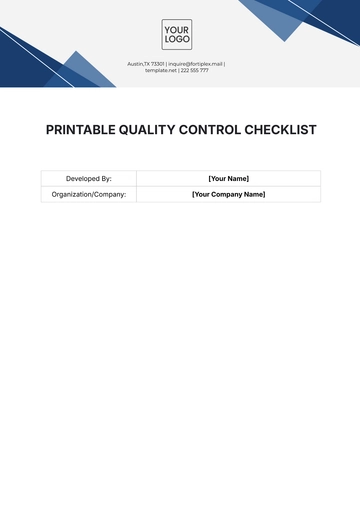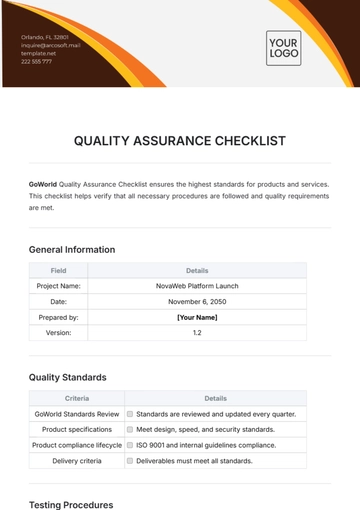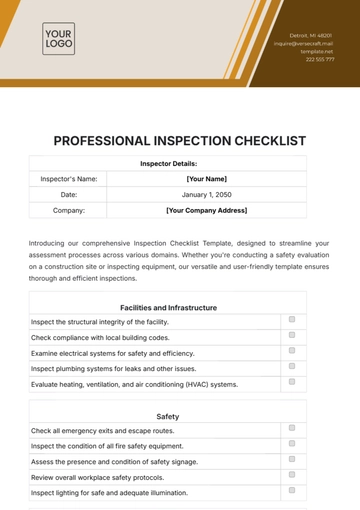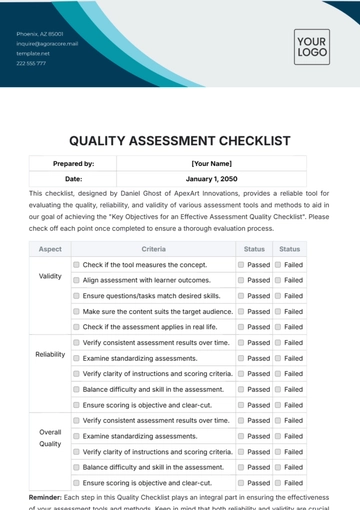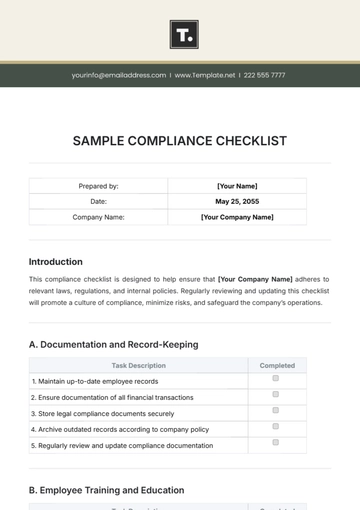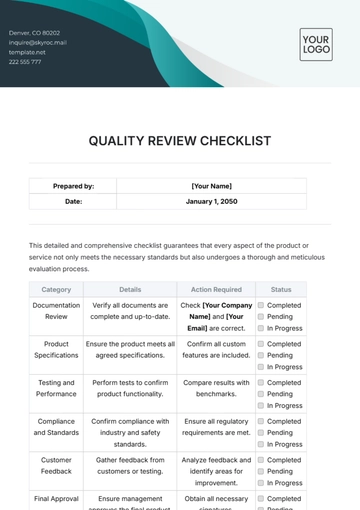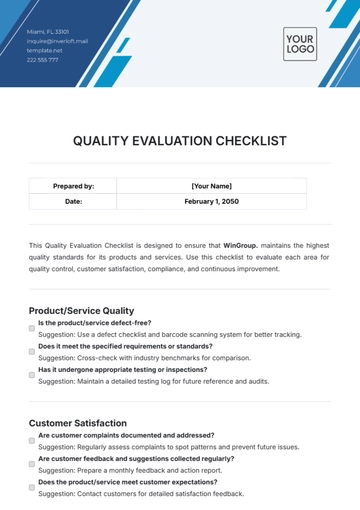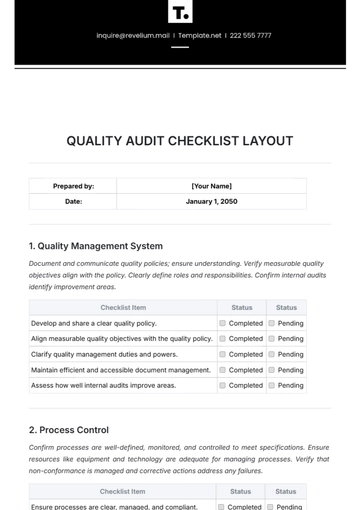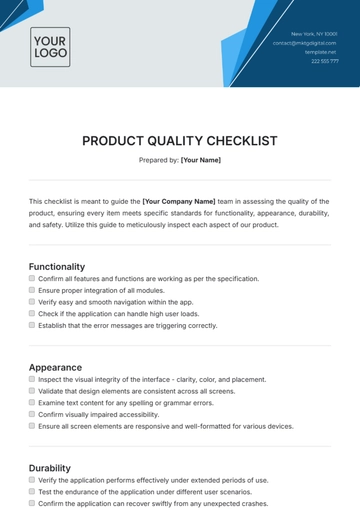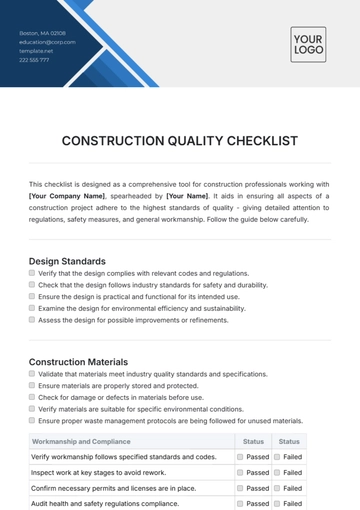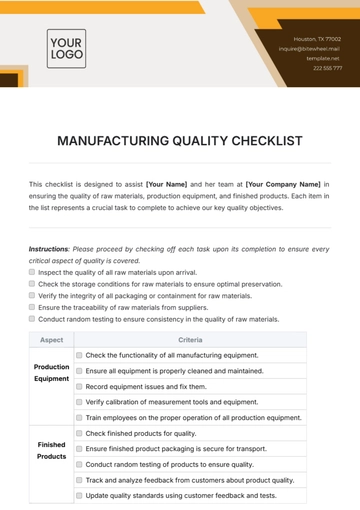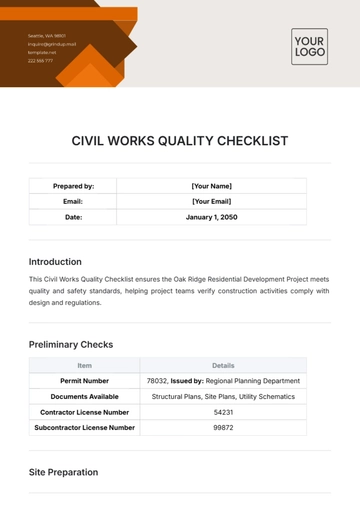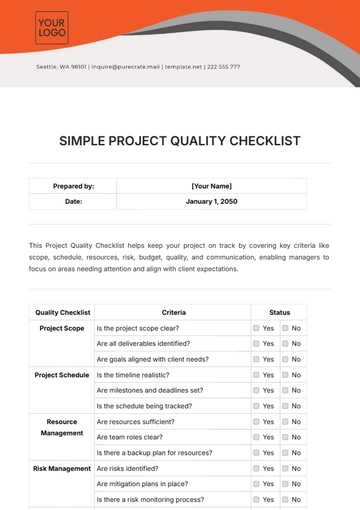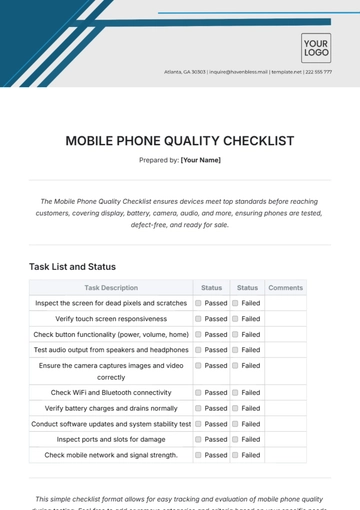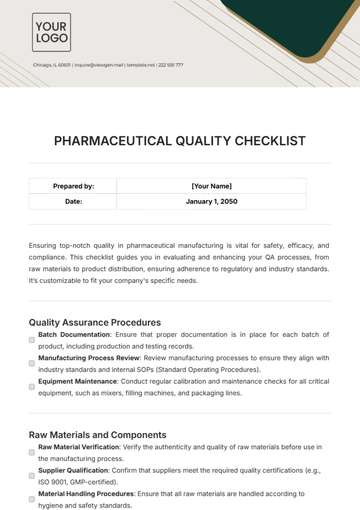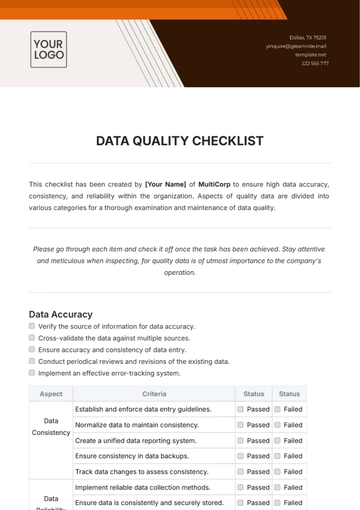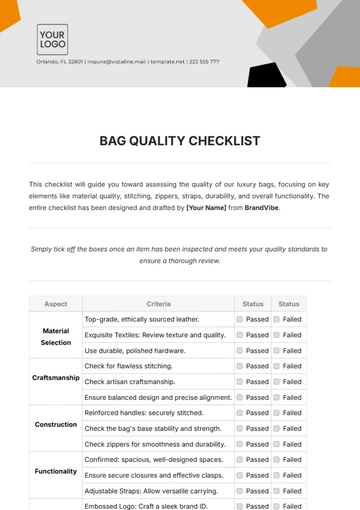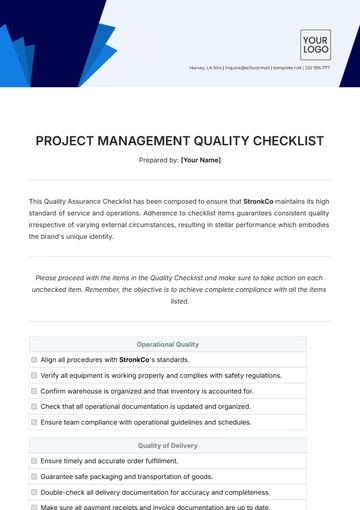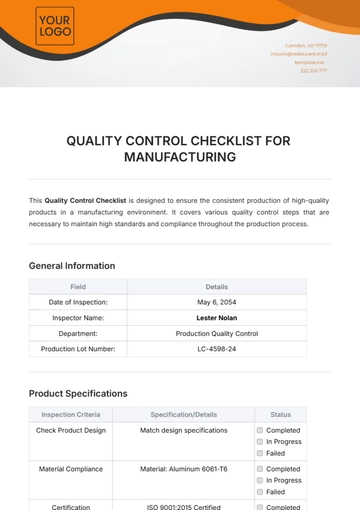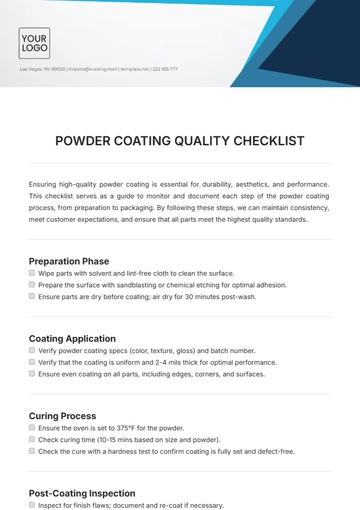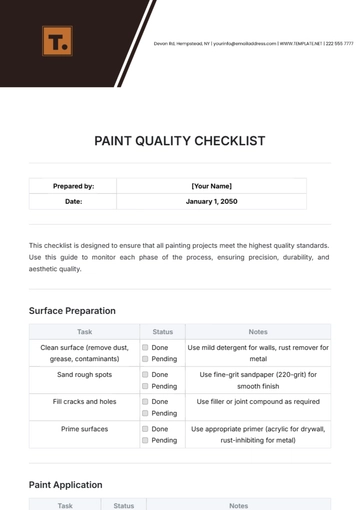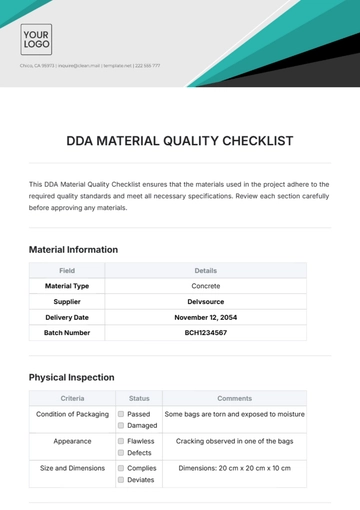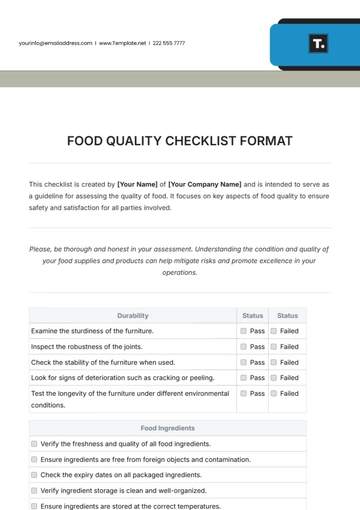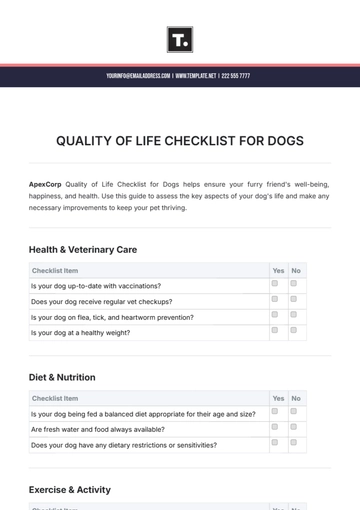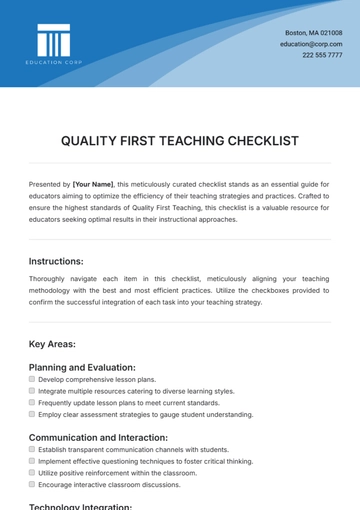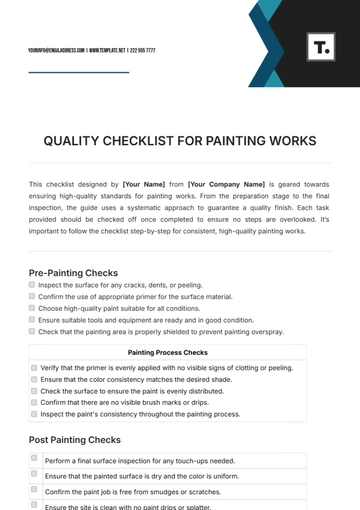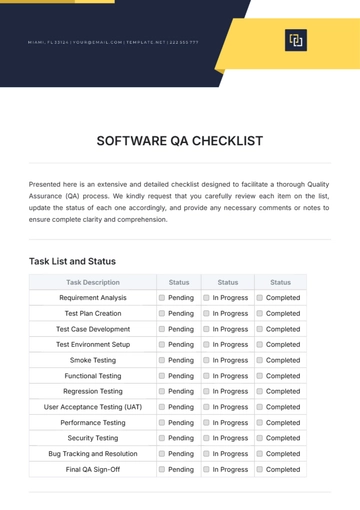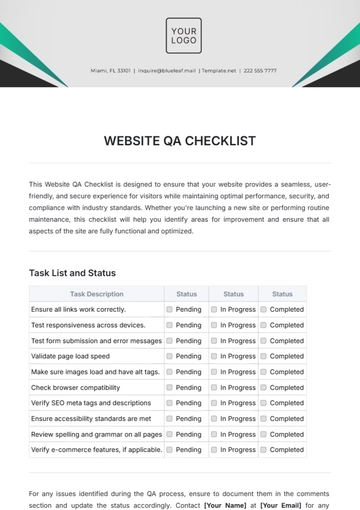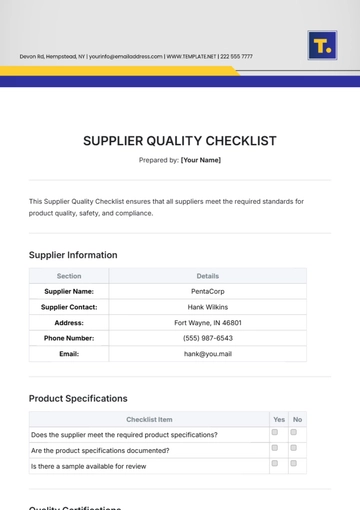Free Real Estate Sustainability Assessment Checklist
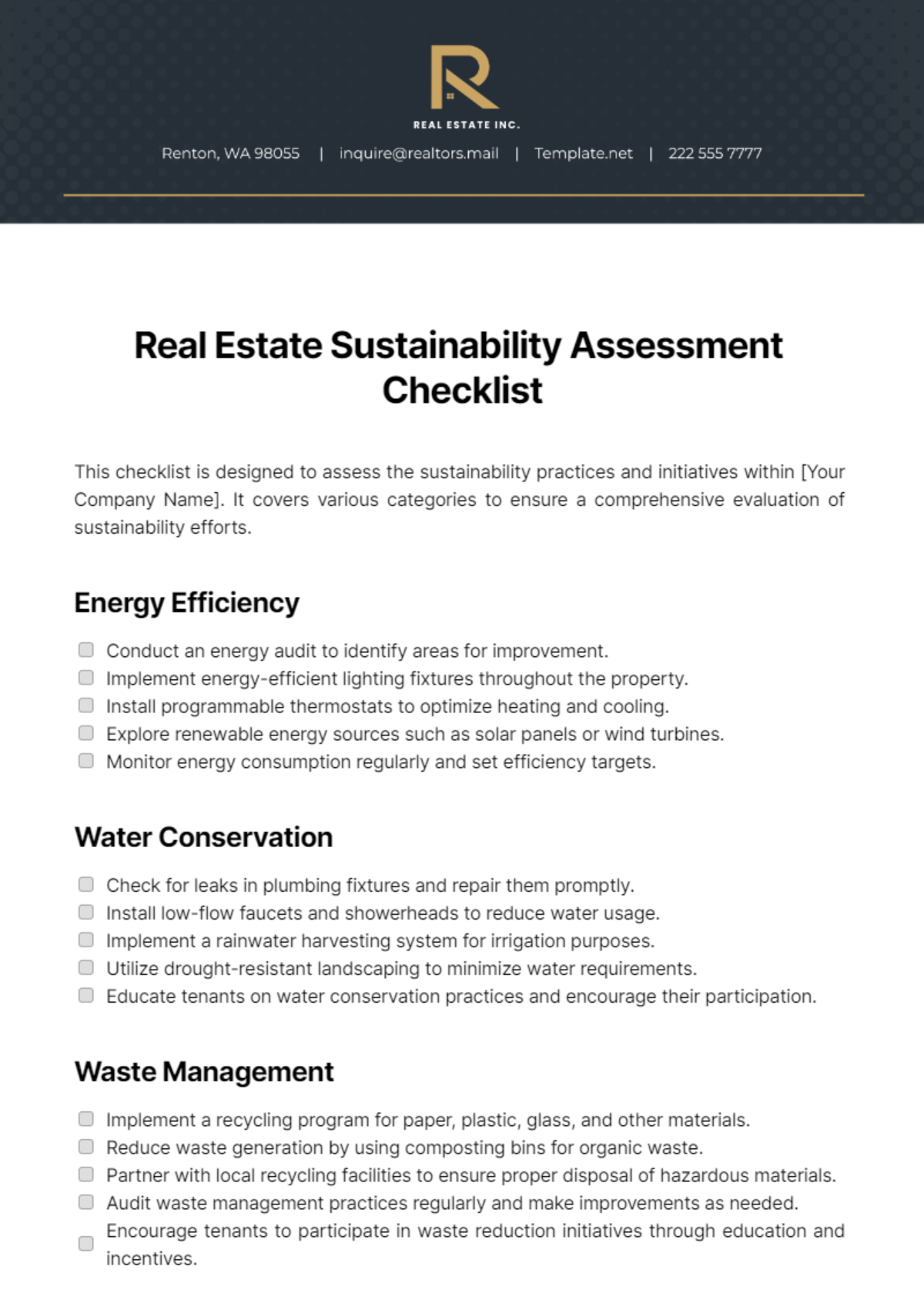
This checklist is designed to assess the sustainability practices and initiatives within [Your Company Name]. It covers various categories to ensure a comprehensive evaluation of sustainability efforts.
Energy Efficiency
Conduct an energy audit to identify areas for improvement.
Implement energy-efficient lighting fixtures throughout the property.
Install programmable thermostats to optimize heating and cooling.
Explore renewable energy sources such as solar panels or wind turbines.
Monitor energy consumption regularly and set efficiency targets.
Water Conservation
Check for leaks in plumbing fixtures and repair them promptly.
Install low-flow faucets and showerheads to reduce water usage.
Implement a rainwater harvesting system for irrigation purposes.
Utilize drought-resistant landscaping to minimize water requirements.
Educate tenants on water conservation practices and encourage their participation.
Waste Management
Implement a recycling program for paper, plastic, glass, and other materials.
Reduce waste generation by using composting bins for organic waste.
Partner with local recycling facilities to ensure proper disposal of hazardous materials.
Audit waste management practices regularly and make improvements as needed.
Encourage tenants to participate in waste reduction initiatives through education and incentives.
Indoor Air Quality
Ensure proper ventilation systems are in place and regularly maintained.
Use low-VOC (volatile organic compounds) paints and finishes for interior spaces.
Test indoor air quality periodically for pollutants such as mold, radon, and allergens.
Provide adequate natural light and access to outdoor spaces for occupants' well-being.
Establish a no-smoking policy indoors to maintain clean air quality.
Community Engagement
Organize sustainability events and workshops for tenants and local community members.
Support local environmental initiatives and collaborate with community organizations.
Engage with tenants to gather feedback on sustainability practices and identify areas for improvement.
Participate in community clean-up efforts and environmentally friendly projects.
Communicate sustainability goals and achievements with stakeholders through newsletters and social media.
Financial Sustainability
Conduct cost-benefit analysis of sustainability initiatives to maximize returns on investment.
Explore financing options for sustainable upgrades and improvements, such as grants or incentives.
Monitor utility costs and savings from energy-efficient practices to track financial impact.
Review budget allocations for sustainability projects and adjust as needed to stay on track.
Consult with financial experts to develop long-term sustainability strategies that align with financial goals.
- 100% Customizable, free editor
- Access 1 Million+ Templates, photo’s & graphics
- Download or share as a template
- Click and replace photos, graphics, text, backgrounds
- Resize, crop, AI write & more
- Access advanced editor
Ensure sustainable real estate practices with Template.net's Real Estate Sustainability Assessment Checklist Template. Editable in our AI Editor Tool, this customizable template provides a structured framework for evaluating the sustainability performance of real estate projects. Streamline assessment processes, identify opportunities for improvement, and enhance environmental stewardship effortlessly with this effective tool!
You may also like
- Cleaning Checklist
- Daily Checklist
- Travel Checklist
- Self Care Checklist
- Risk Assessment Checklist
- Onboarding Checklist
- Quality Checklist
- Compliance Checklist
- Audit Checklist
- Registry Checklist
- HR Checklist
- Restaurant Checklist
- Checklist Layout
- Creative Checklist
- Sales Checklist
- Construction Checklist
- Task Checklist
- Professional Checklist
- Hotel Checklist
- Employee Checklist
- Moving Checklist
- Marketing Checklist
- Accounting Checklist
- Camping Checklist
- Packing Checklist
- Real Estate Checklist
- Cleaning Checklist Service
- New Employee Checklist
- Food Checklist
- Home Inspection Checklist
- Advertising Checklist
- Event Checklist
- SEO Checklist
- Assessment Checklist
- Inspection Checklist
- Baby Registry Checklist
- Induction Checklist
- Employee Training Checklist
- Medical Checklist
- Safety Checklist
- Site Checklist
- Job Checklist
- Service Checklist
- Nanny Checklist
- Building Checklist
- Work Checklist
- Office Checklist
- Training Checklist
- Website Checklist
- IT and Software Checklist
- Performance Checklist
- Project Checklist
- Startup Checklist
- Education Checklist
- Home Checklist
- School Checklist
- Maintenance Checklist
- Planning Checklist
- Manager Checklist
- Wedding Checklist
- Vehicle Checklist
- Travel Agency Checklist
- Vehicle Inspection Checklist
- Interior Design Checklist
- Backpacking Checklist
- Business Checklist
- Legal Checklist
- Nursing Home Checklist
- Weekly Checklist
- Recruitment Checklist
- Salon Checklist
- Baby Checklist
- Equipment Checklist
- Trade Show Checklist
- Party Checklist
- Hospital Bag Checklist
- Evaluation Checklist
- Agency Checklist
- First Apartment Checklist
- Hiring Checklist
- Opening Checklist
- Small Business Checklist
- Rental Checklist
- College Dorm Checklist
- New Puppy Checklist
- University Checklist
- Building Maintenance Checklist
- Work From Home Checklist
- Student Checklist
- Application Checklist
